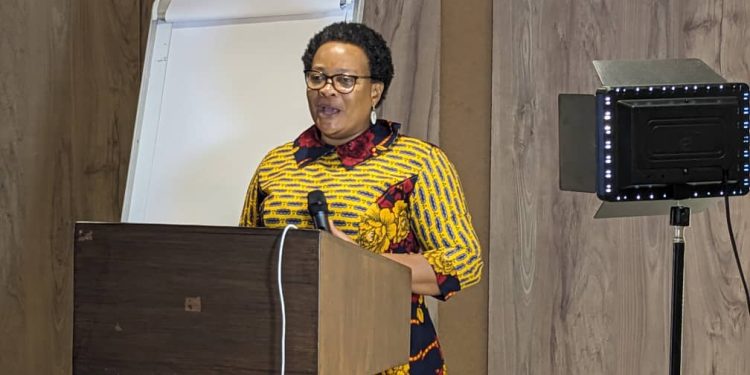Ghana’s Anti-Corruption Systems Failing Due to Partisan Loyalty and Systemic Weaknesses – Mary Addah
Ghana’s anti-corruption efforts are failing to yield meaningful results due to entrenched partisanship, institutional weaknesses, and the lack of a unified front across civil, public and private sectors, according to Mary Addah, Executive Director of Transparency International Ghana.
Speaking during the NorvanReports X Space Discussion organised in collaboration with the Ghana Anti-Corruption Coalition (GACC) and the Hewlett Foundation on the theme, “State of Corruption in Ghana: Why the Needle Isn’t Moving – What Ghana’s Anti-Corruption Architecture is Getting Wrong”, Mrs Addah warned that the country’s anti-corruption architecture was being undermined by selective commitment and political expediency.
“It is a systemic issue. It is endemic. And it takes all of us—citizens, private actors, and public officials—to accept that the status quo must change,” Mrs Addah said.
Her remarks come as public confidence in Ghana’s governance institutions wanes amid persistent reports of procurement irregularities, regulatory capture, and rising costs linked to unofficial payments in both public services and business transactions.
Drawing on over a decade of advocacy experience, Mrs Addah recounted the early promise of Business Integrity Forums aimed at instilling ethical conduct within the private sector. However, she noted that efforts to enforce integrity standards have often faltered due to fears of competitive disadvantage, particularly when some businesses continue to benefit from corrupt practices while others adhere to best practices.
“The conversation has always been: if everyone is not on board, we won’t play ball,” she observed, referring to a recurring reluctance within the business community to act unilaterally on ethical commitments.
Mrs Addah stressed that Ghana’s anti-corruption frameworks—including the National Anti-Corruption Action Plan (NACAP), first adopted over a decade ago—require renewed commitment and operational independence from political influence. She invoked Article 36(8) of the Constitution, which mandates the state to take necessary steps to eradicate corruption, arguing that this directive has been largely ignored in implementation.
In an implicit critique of Ghana’s political establishment, she noted that “agents” of political power continue to wield disproportionate influence over institutions and public sentiment, often using partisan loyalty to shield misconduct. “We cannot continue to reflect party interest over national interest,” she said.
Mrs Addah also acknowledged a gradual shift in public consciousness, pointing to recent high-profile arrests and diminished mass demonstrations in defence of political figures as evidence that the citizenry may be tiring of blind partisan support.
“In countries where anti-corruption systems work, it is not because the people are angels, but because institutions are strong and internal policing mechanisms function effectively,” she said, citing the Scandinavian model of institutional accountability and long-term investment in ethical governance.
As Ghana prepares for national elections in 2028, observers say the fight against corruption will remain a key issue—especially as donor confidence, private investment, and development outcomes are increasingly tied to perceptions of institutional integrity.








